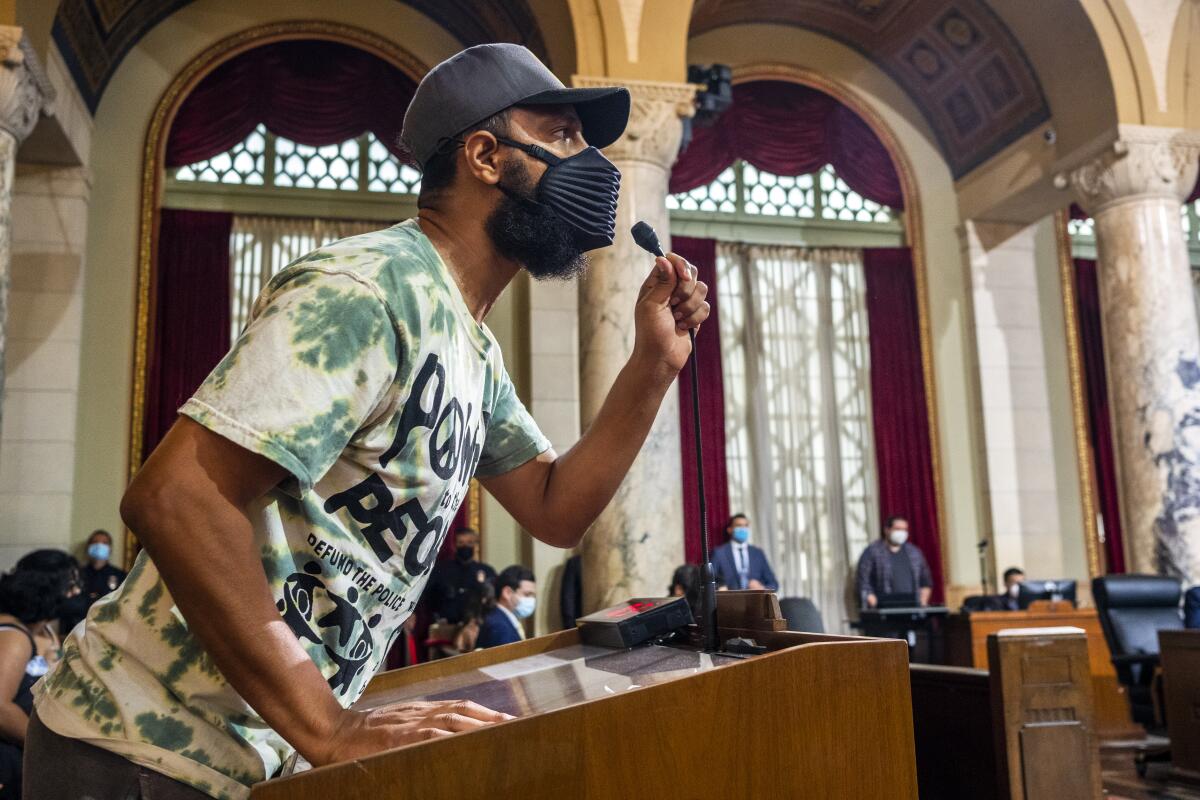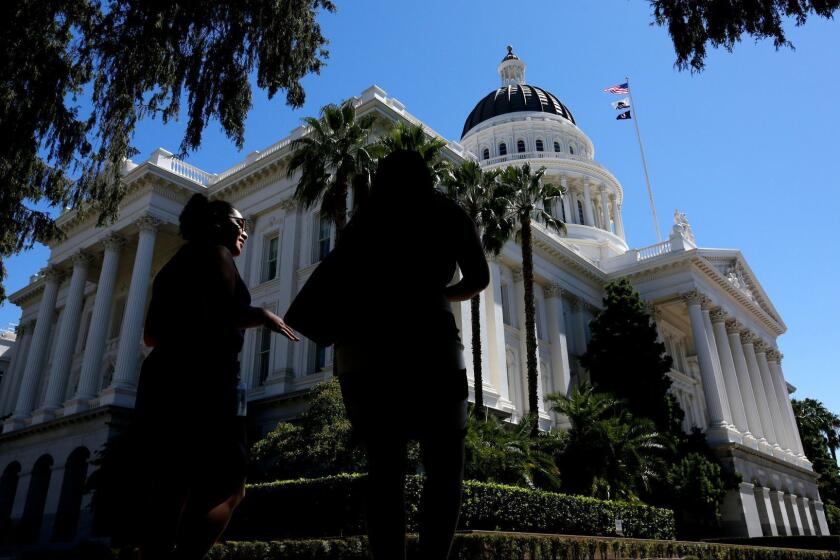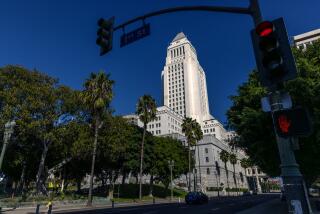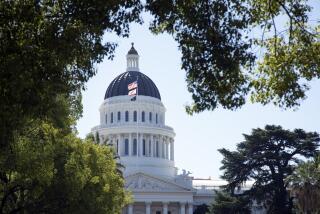Editorial: Return to pre-pandemic public meeting rules? Yes — and no

The government bodies that cut off public attendance at meetings two years ago because of the COVID-19 emergency made up for it with up better-than-ever remote access — by Zoom, Teams, telephone or other technology. But some now want to ditch pandemic-era electronic access, traditional in-person access or both.
For example, on May 4 the Los Angeles City Council welcomed the public back to City Hall for the second time since March 2020. That was good news, because a public body doing the public’s business should allow the public to see it, and speak with it, face to face.
But as it reopened its doors, the council hung up the phone on public comment.
Why not open to the public in person and take public calls? It’s like the quip about not being able to walk and chew gum at the same time. Doing both things really isn’t much of a challenge.
The pandemic forced government bodies to open meetings to electronic remote access, allowing the public to participate from home. That’s a good thing, and a new bill would require it to keep going after the emergency is over.
The pandemic telephone access gave a meaningful chance to participate to constituents with impaired mobility who rarely if ever had a chance to “attend” a City Council meeting, as well as to those living in Wilmington or West Hills or some other neighborhood a long and difficult car or multiple-bus trip away. There’s no good reason to cut them off now, except that council members presumably don’t think they can handle being addressed both in person and by phone.
Of course they can. Or, if they can’t, they should remember that there’s an election in progress and that voters might prefer candidates who will listen to them.
Meanwhile, some state lawmakers have come up with a plan that is quite different but at least as bad — allowing elected officials and appointees (rather than members of the public) to choose to only participate electronically.
Under AB 1944 and AB 2449, state and local elected and appointed officials would be able to call in from secret locations such as, say, an exclusive club, the corner bar or a big donor’s private estate, instead of sitting among their colleagues in a public place. They could just phone it in, without ever making themselves available to their constituents face to face.
The pandemic has forced many government agencies to be more accessible to the public. Yet the Assembly lets some committees block public comment by phone.
This would be a shocking departure from open meeting laws on the books since the middle of the last century that have guaranteed the public’s right to be in the same room as their government officials. It would entail carving out an exception to the state’s Brown Act, which requires local governments to meet publicly.
The bills are an outgrowth of an emergency order that was entirely appropriate when Gov. Gavin Newsom signed it two years ago, at a time when council members and other officials had to participate in their proceedings while sitting at their kitchen tables and sheltering themselves from COVID.
An early version of the order would have required them to publish their addresses, to allow members of the public to still see them conduct their meetings in person, but Newsom quickly scrapped that part so officials wouldn’t be forced to make their private homes into public meeting halls.
But the bills would now make secret meeting locations permanent by permitting any elected official to stop attending meetings in person if approved by the board or council, even without a declared health and safety emergency. That kind of separation of officials from the people they serve is unacceptable.
Los Angeles County supervisors seem to enjoy their low-tech world where the coronavirus emergency is an excuse to keep the public quiet.
Perhaps there could be a very few carefully drafted exceptions. In the same way that constituents with limited mobility couldn’t previously participate in public meetings before phone or remote video access became available, would-be officials who have the same limitations might be shut out of serving unless they are allowed to call in. Any legislation could be written to accommodate them without making secret meeting locations the norm for officials who shouldn’t be shielded from view.
The goal should be more and better public access to and participation in government decision-making. The pandemic has shown California lawmakers what the rest of the world already knew — that technology can easily and affordably enhance openness and transparency. Any new government meetings law should make these forms of access permanent.
But AB 1944 and AB 2449 as currently written would allow technology to be used to widen the separation between the people and their representatives. For that reason, they should be rejected.
More to Read
A cure for the common opinion
Get thought-provoking perspectives with our weekly newsletter.
You may occasionally receive promotional content from the Los Angeles Times.











